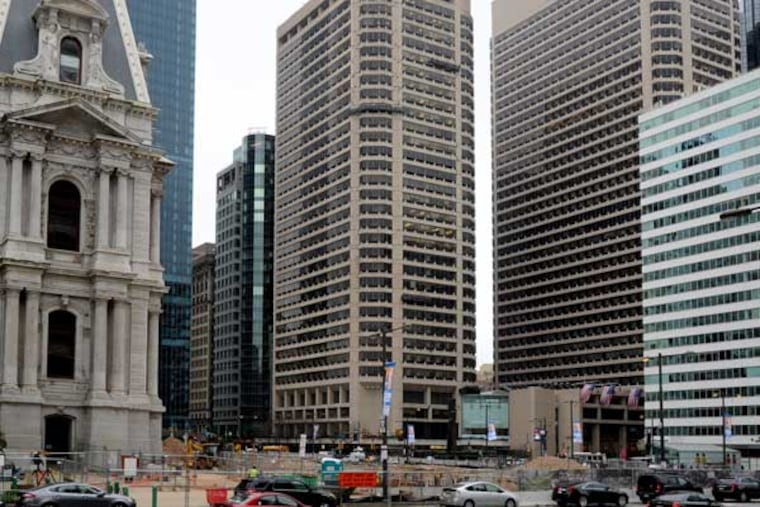Trial opens in one of Philly’s largest-ever assessment appeal cases, with $63 million at stake
owners of 700 commercial properties are attempting to prove to a judge that Philadelphia illegally targeted them in a 2018 revaluation that significantly increased their tax bills.

Assessors “deliberately chose to single out” some of the city’s most-prominent and valuable commercial real estate in a 2018 revaluation that significantly increased their tax bills, an attorney for 700 commercial property owners argued Monday.
The allegation by Adam Koelsch came at the opening of one of the largest assessment appeal cases in the city’s history Monday, with about $63 million in tax revenue at stake and involving office complexes, hotels, and apartment buildings that include One Liberty Place, Centre Square, and the Bellevue Hotel.
The city countered that its methodology was appropriate.
The case hinges on a 19th-century law known as the uniformity clause, which requires counties to assess all properties at the same percentage of value.
The property owners allege that the 2018 revaluation, which raised an additional $118 million in tax revenue for the city and School District, focused only on commercial and industrial parcels and therefore violated the state constitution.
“In short, commercial properties were revalued at market value and residential were not," said Koelsch, a lawyer with Chamberlain Hrdlicka, who delivered opening arguments on behalf of the property owners. “The city deliberately chose to single out commercial properties."
The city maintains that its work was legal, and that while all properties were reviewed in 2018, the nonresidential parcels were most in need of updates.
Another key issue is the city’s implementation of the so-called Actual Value Initiative (AVI) that took effect in 2014. Under it, the city assesses all property at 100 percent of its value, or the amount for which a property could sell on the open market.
Deputy City Solicitor Benjamin Field said the implementation of AVI included values for commercial and industrial properties that were too low and in need of revision. The property owners “benefited from the imperfection” of those values until 2018, when they were corrected, Field said.
Field said the Office of Property Assessment (OPA) does its best each year to improve uniformity and keep values up to date in the city’s “voluminous and complex property inventory."
“OPA’s processes were appropriate, were neutral, and improved uniformity each year," he said.
Testimony began Monday with Chief Assessment Officer Michael Piper, who explained the city’s methods of valuing property.
Asked whether the city achieved its goals with the Actual Value Initiative, Piper said: “In some respects we did, in some respects we didn’t.”
A lawyer representing the 700 property owners questioned Piper about news releases, testimony before City Council, internal emails, and presentations that referred to the 2018 assessment project, in an effort to prove that only commercial and industrial properties were revalued.
Piper’s days as chief of OPA are likely numbered; after City Council called for new leadership in the office and declined to approve his appointment to another term, Mayor Jim Kenney launched a search in February for his replacement. The search for a new chief assessor comes amid an unrelated but continued outcry from City Council members and residents over a 2019 reassessment that raised the median value of a single-family home by 10.5 percent. Values and corresponding tax bills are set to rise again in 2020 for thousands of homeowners.
Former Mayor John F. Street, who has filed his own lawsuit against the Kenney administration over property assessments, attended the trial Monday wearing a T-shirt underneath his blazer that read, “Stop illegal real estate assessment tax increases." Street said he designed the shirt himself.
In court Monday, lawyers for the property owners cited the 2019 reassessment that changed the values of most residential properties in the city as evidence that commercial property owners were unfairly singled out in 2018.
Two administrators of OPA’s residential property division also testified Monday. They said OPA’s modeling team modeled only commercial and industrial property values for 2018. The residential property unit, they said, did only routine work for 2018, which included updating values for new construction, tax abatements, and changes in conditions of properties.
Whether that work amounted to a reassessment of residential properties is at issue in the case, because the commercial property owners allege that there was no full reassessment of residential properties that year.
The trial, before Senior Common Pleas Court Judge Gene Cohen, is expected to last two weeks.